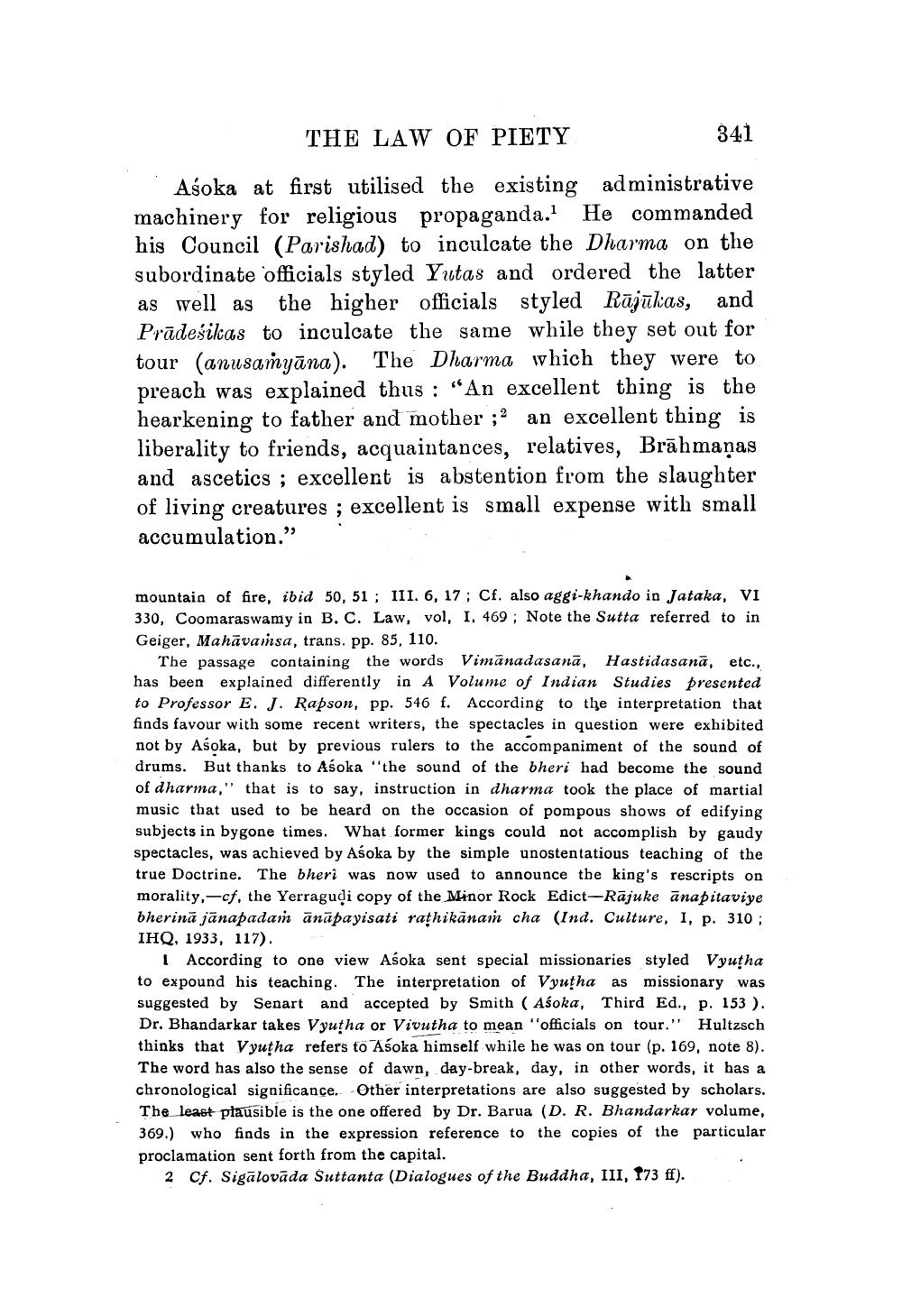________________
THE LAW OF PIETY
341
Asoka at first utilised the existing administrative machinery for religious propaganda. He commanded his Council (Parishad) to inculcate the Dharma on the subordinate officials styled Yutas and ordered the latter as well as the higher officials styled Rājūkas, and Prādesikas to inculcate the same while they set out for tour (anusamyāna). The Dharma which they were to preach was explained thus : “An excellent thing is the hearkening to father and mother ;? an excellent thing is liberality to friends, acquaintances, relatives, Brāhmaṇas and ascetics ; excellent is abstention from the slaughter of living creatures ; excellent is small expense with small accumulation."
mountain of fire, ibid 50, 51 ; III. 6, 17; Cf. also aggi-khando in Jataka, VI 330, Coomaraswamy in B. C. Law, vol. I, 469 ; Note the Sutta referred to in Geiger, Mahāvansa, trans. pp. 85, 110.
The passage containing the words Vimānadasanā, Hastidasanā, etc., has been explained differently in A Volume of Indian Studies presented to Professor E. J. Rapson, pp. 546 f. According to the interpretation that finds favour with some recent writers, the spectacles in question were exhibited not by Asoka, but by previous rulers to the accompaniment of the sound of drums. But thanks to Asoka "the sound of the bheri had become the sound of dharma," that is to say, instruction in dharma took the place of martial music that used to be heard on the occasion of pompous shows of edifying subjects in bygone times. What former kings could not accomplish by gaudy spectacles, was achieved by Asoka by the simple unostentatious teaching of the true Doctrine. The bheri was now used to announce the king's rescripts on morality.-ef. the Yerragudi copy of the Minor Rock Edict-Rājuke ānapitaviye bherinā janapadam ānā payisati rathikānam cha (Ind. Culture, I, p. 310; IHQ, 1933, 117).
1 According to one view Asoka sent special missionaries styled Vyutha to expound his teaching. The interpretation of Vyutha as missionary was suggested by Senart and accepted by Smith (Asoka, Third Ed., p. 153 ). Dr. Bhandarkar takes Vyutha or Vivutha to mean "officials on tour." Hultzsch thinks that Vyutha refers to Asoka himself while he was on tour (p. 169, note 8). The word has also the sense of dawn, day-break, day, in other words, it has a chronological significance. Other interpretations are also suggested by scholars. The least plausible is the one offered by Dr. Barua (D. R. Bhandarkar volume, 369.) who finds in the expression reference to the copies of the particular proclamation sent forth from the capital.
2 Cf. Sigālovāda Suttanta (Dialogues of the Buddha, III, 173 ff).




